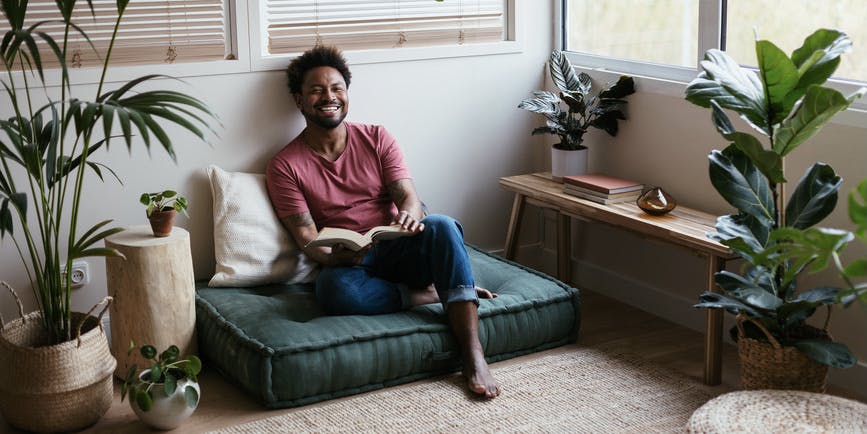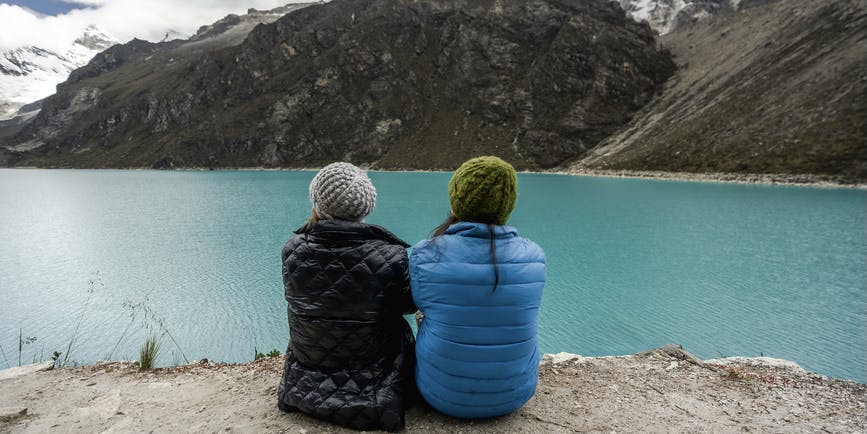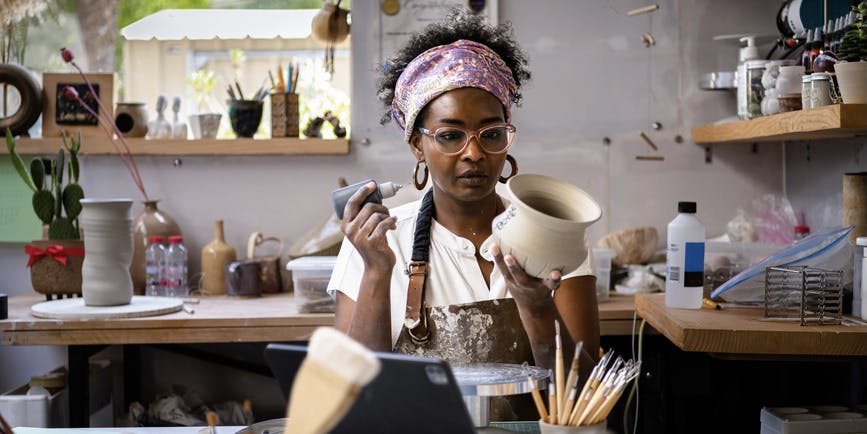The latest research on how to be happy

Topics
Nobody’s happy all of the time. But everyone deserves to be happy some of the time.
So this week, we’re sharing vetted resources aimed to add light to your life. Scroll to read how scrutinizing happiness studies revealed which practices truly help us feel happier, why some therapists are moving sessions outdoors + the many ways hobbies can benefit health.
We close with a message from our CEO about how Dr. B is addressing a cyberattack (Not us! We’re good!) and news about an FDA smart device warning + the Alabama embryo ruling. But first, slide down into a happy-packed…
- Checkup: move + eat + create + learn
- Be Happy: studies + ecotherapy + hobbies
- Healthcare: FDA + cyberattacks + embryos
The Checkup
- Is a runner’s high legit + why can’t everyone have one?!
- How to nurture creativity when you have a chronic illness
- Huh. Wearing high heels might be good for some of us!
- “Beer before liquor, never been sicker.” True or false?
- How long do warts last down in your nether regions?
- *t happens. Here’s why booze makes you poop weird
- A study proves writing by hand can improve memory
- Wendy Williams’ forced bank conservatorship explained
- Why/how exercising in cold weather can be good for you
- How to use miso paste for super-buttery-tasting noodles
Reconsidering happiness studies

Countless research studies on happiness abound. But in an effort to curb biased study conclusions, a new review found only 48 research teams had publicly preregistered their analysis plans.
Amongst those studies, proven methods to increase short-term happiness include expressing gratitude, receiving money, smiling more + acting like an extrovert. None confirmed that meditation or acts of kindness improve happiness. (It doesn’t mean those methods don’t—they just weren't proven.) And no paper on the effects of time spent in nature or exercise had been preregistered.
Head to Scientific American for more fascinating funnel findings.
Therapy outdoors, anyone?!

Feel stifled by your 45-minute couch or Zoom session? Ecotherapy might be your answer.
Breaking with formality, a growing number of ecotherapists are working with clients while walking on a beach, hiking, snowshoeing or sitting in the rain. In these settings, elements of nature become metaphors for challenges or transitions: Pinecone edges represent the roughness of grief, or a thunderous rainstorm mirrors the uncontrollability of anxiety. While studies suggest time in nature can help improve mental health, not all practitioners are on board with the approach.
To learn more about its risks and potential, head to the New York Times.
Hobbies + happiness

Instagram bragging + sick day boredom aside, this Self article recaps studies into a strong argument for taking up a hobby.
One massive analysis showed that study participants with hobbies self-reported greater long-term health, happiness + life satisfaction than those without—who self-reported higher rates of depression. In the short term, hobbies can counter routine work stress. And another analysis showed that hobbies can boost social skills, resilience, mindfulness and 600 other areas of health + wellness!
So if you’ve been wary of leisure activities, pondering if they even have a point?!?!, head to the article for details + ideas.
Healthcare 411
FDA warns against using smartwatches and smart rings to measure blood sugar (CNN). The FDA has not approved any watch or ring that measures blood glucose without piercing skin, as several claim to do. The device readings can lead to inaccurate analysis, which could be especially dangerous for those with diabetes or other blood sugar issues.
Dr. B's response to the Change Healthcare cyberattack (Dr. B). On Wednesday, hackers accessed system data at Change Healthcare, which processes prescriptions to insurance companies for tens of thousands of pharmacies. Dr. B has not been impacted + our systems remain entirely secure. Because we recognize this will cause prescription delays, we’re offering free online consultations to affected patients. For details, read the above response from our CEO, Cyrus Massoumi or...
The science of IVF: What to know about Alabama's 'extrauterine children' ruling (NPR). An Alabama court ruled that embryos destroyed in a fertility clinic accident were protected under the state’s Wrongful Death of a Minor Act. As of now, the ruling sets a precedent that “personhood” begins at conception—including un-transferred or frozen embryos. Read the article for specifics on how the IVF process + ruling could further conflict + spread amongst other states.
Topics
Sign up for the free Dr. B newsletter for a weekly report on the latest in healthcare + research-based advice for staying healthy and mentally well.